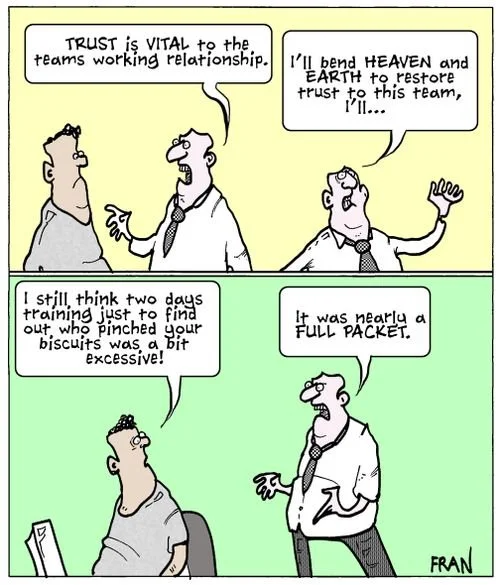Module One: Trust
Trust is built through experience. It is not gained through lectures, promises or good intentions. Recently, I observed a team that added to their infrastructure of trust. It began with a crisis and ended with excellence. The day began as normal but in the course of a few minutes, it was filled with multiple situations that required teamwork and sacrifice. This team answered the call and ventured out of their comfort zones to accomplish the mission at hand.
The mission or task is not what built trust on this team. The willingness to act decisively and selflessly for the good of another and for the overall benefit of the team is what mattered. Once the crisis was over, each member involved knew that they could depend on one another. They knew this not because of a speech, talk, or passionate conversation. They had experienced what it felt like for their teammates to deliver in the midst of a storm.
We talk a lot about trust, but do we look for ways to turn our words into action? Do we consistently come through for others when they need us? Do we look for ways to do good? Can we be depended upon to sacrifice ourselves for others when there is no recognition or gain for us?
Choose to build trust by consistently doing good for others and you will make a difference.
Larry Little
Eagle Center for Leadership
At North Wind, trust begins with how leaders carry responsibility. It grows through clear expectations, honest decisions, and consistent follow-through. When leaders act with fairness and communicate with respect, they build confidence in their words and choices. These patterns shape how others respond over time and influence the tone of the workplace.
“Trust is like the air we breathe. When it’s present, no one really notices. When it’s absent, everyone notices.”
Trust supports the work we do every day. It strengthens our ability to serve with reliability, lead with integrity, and stay mission-focused for our nation and families. When trust is present, people are more willing to speak openly, take initiative, and remain engaged in what matters. It brings clarity to expectations and creates stability in working relationships. Without it, even small issues can take root and grow over time.
Accountability depends on trust. When it is missing, responsibility becomes harder to share, and communication begins to stall. When it is present, teams can stay connected, respond to challenges, and follow through on shared goals.
This section looks at how trust is built, how it connects to personal accountability, and how it supports consistent leadership across teams and responsibilities.


